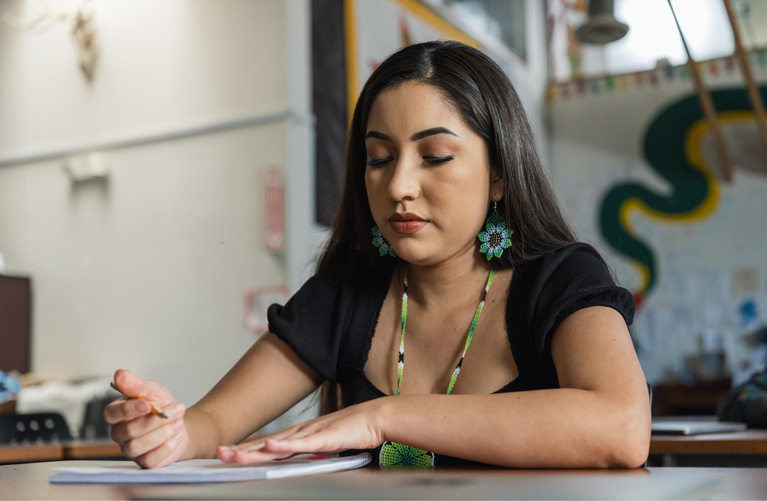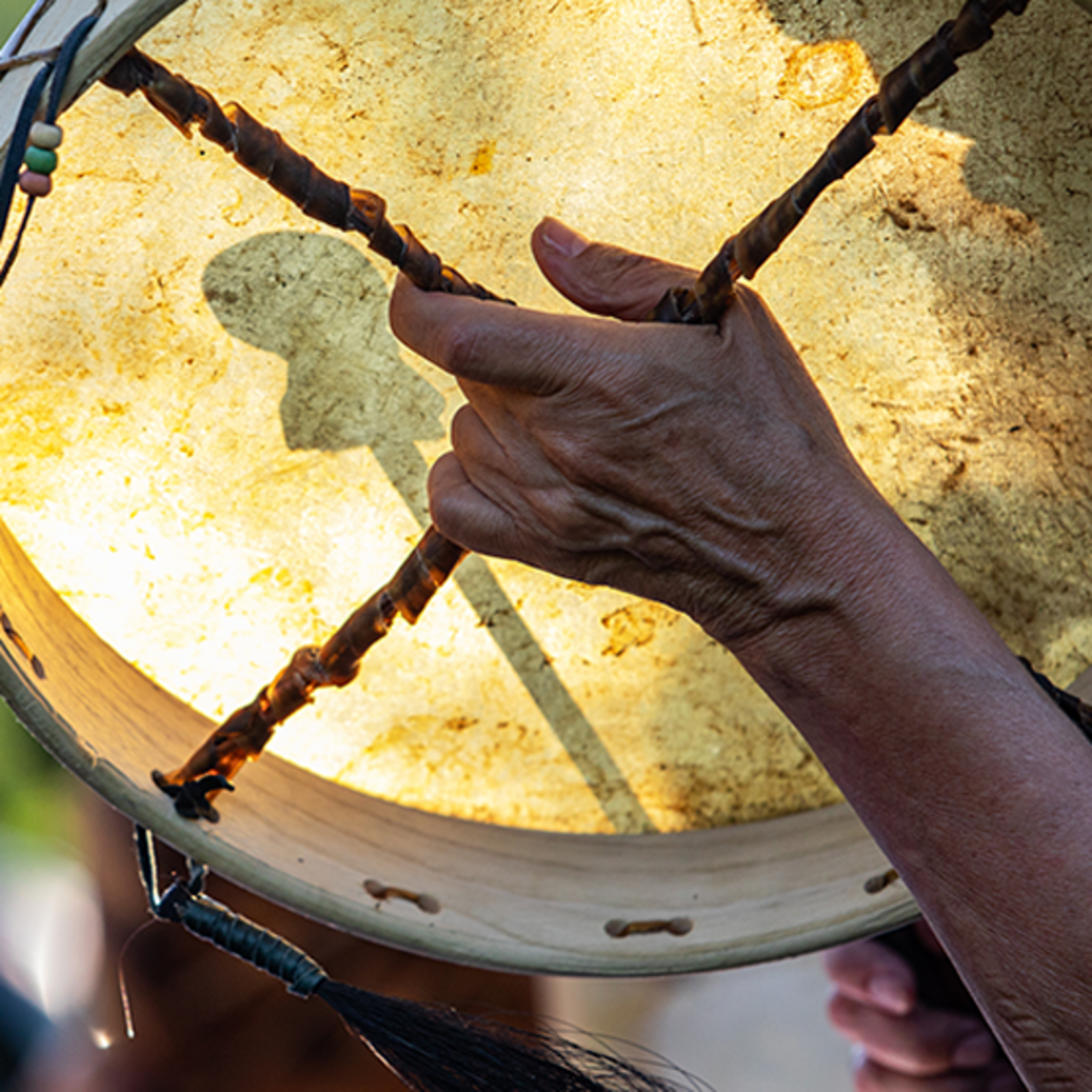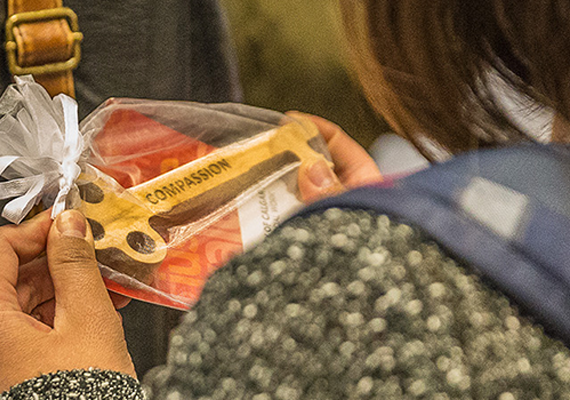Milestones: Student Experience, Learning, and Success
Milestone: BSW Re-imagined for Today’s students and tomorrow’s challenges
In spring 2023, we proudly announced the evolution of our Bachelor of Social Work (BSW) program, set to launch in fall 2024. Our innovative program was shaped through constructive consultation with faculty, students and the community. The fresh curriculum, which complies with the Canadian Association for Social Work Education's accreditation standards, is designed to shape our students into the outstanding social workers of the future.
Our new program introduces a completely online BSW with no requirement to attend on-campus classes. We also offer a “blended” program that combines online learning with one day of on-campus classes at our Edmonton, Lethbridge or Calgary locations. Keeping on-campus learning to a single day allows our blended students to fit education into their busy lives.
Field education and experiential learning remain the cornerstone of our restructured BSW program. Students will interact with their communities early in their programs, and our field team will continue supporting students across Canada in completing practicums in their home communities.

Alumni and students clearly told us that an online option was the only way that they could pursue their dream of becoming a social worker. Many of our students juggle work with family and parental responsibilities, and I think our new program will allow more students to fit social work education into their lives.
Dr. Gail Zuk, associate dean of Undergraduate Programs
Associate Dean of Undergraduate Programs
Since the online program has no on-campus commitment, our BSW is open to students across Canada.
Strategic Plan Objective: Provide a leading-edge curriculum that addresses the intersectionality of racism, colonization, social injustice, sustainability, well-being, and social change.
Our new BSW upholds our strategic plan's objective of fostering diverse knowledge development and teaching methods. We're committed to offering a progressive curriculum that investigates the intersectionality of racism, colonization, social injustice, sustainability, well-being and social change. These principles are integrated throughout our curriculum, including our new core courses on decolonizing methods, Indigenous knowledge, Afro-Canadian experiences, anti-racism and more. The new BSW transcends individual courses, interweaving the intersectionality of identities throughout the curriculum.
Milestone: MSW re-accredited for maximum term by CASWE
Last year our Master of Social Work Program was thoroughly evaluated by the Canadian Association for Social Work Education, as part of the regular accreditation cycle. The process provided us with the opportunity to engage with our communities and stakeholders including social workers, current students, faculty and staff, and alumni who provided feedback to the external CASWE review team in a series of focus groups. The external team renewed the faculty’s accreditation for the maximum allowable term of seven-years, which speaks to the outstanding calibre of our MSW program.
2022-23 Graduate Education Update
In 2020, following substantial engagement and feedback from the social work community, we revised and re-imagined our Master of Social Work program. Our focus was on preparing students for the intricacies of Canadian society, inclusive of support for Indigenous peoples, newcomer populations and other diverse, equity-deserving groups.
Our transformed program has enabled us to offer an unparalleled array of specializations, addressing practice needs province-wide and across Canada.
In 2022-23, we continued to adapt to our students' needs, streamlining program offerings and standardizing the delivery of all specializations. We are progressively shifting to a single delivery model for all our specializations throughout Alberta. These changes are being phased in to ensure current students aren't affected.
Additionally, we successfully collaborated with UCalgary to ensure that graduate certificate specialization topics will now be reflected on a graduate's parchment. Consequently, graduates will have their credentials, area of study and their specialization clearly indicated (for example, “Graduate Certificate in Clinical Social Work Practice. Specialization: Trauma-Informed Practice”).
Graduate Certificates
In 2020, following substantial engagement and feedback from the social work community, we revised and re-imagined our Master of Social Work program. Our focus was on preparing students for the intricacies of Canadian society, inclusive of support for Indigenous peoples, newcomer populations and other diverse, equity-deserving groups.
Our transformed program has enabled us to offer an unparalleled array of specializations, addressing practice needs province-wide and across Canada.
In 2022-23, we continued to adapt to our students' needs, streamlining program offerings and standardizing the delivery of all specializations. We are progressively shifting to a single delivery model for all our specializations throughout Alberta. These changes are being phased in to ensure current students aren't affected.
Additionally, we successfully collaborated with UCalgary to ensure that graduate certificate specialization topics will now be reflected on a graduate's parchment. Consequently, graduates will have their credentials, area of study and their specialization clearly indicated (for example, “Graduate Certificate in Clinical Social Work Practice. Specialization: Trauma-Informed Practice”).
Specialization Topics:
2023
Advanced Social Work Practice
Trauma-Informed Practice
The Practical and Transformational Leader
2024
Advanced Social Work Practice
Community-Informed Practice for Health and Well-being
Indigenous Ways of Knowing in Leadership (proposed)
2025
Community Development

Milestone: Indigenous Ways of Knowing in Leadership graduate certificate proposed for fall 2024
Our commitment to Truth and Reconciliation includes a unique, new, proposed graduate certificate specialization: Indigenous Ways of Knowing in Leadership. This program is designed to equip Indigenous and non-Indigenous social work leaders with the skills to foster healthy relationships and transform leadership practices with Indigenous peoples. It will be led by a collaborative team of Indigenous social work instructors, Elders, Knowledge Keepers and recognized, non-Indigenous social work instructors, who work in good relations with Indigenous peoples.
The proposed specialization will offer a curriculum grounded in Indigenous perspectives. Students will engage in land-based teachings, circle process and ceremony. The program is designed as a blended learning experience combining face-to-face residencies, experiential learning and online courses.

PhD Program Update
Many MSW thesis and doctoral students successfully defended their work this academic year. The PhD committee launched an internal review to identify how to strengthen our recruitment and adjudication processes. In partnership with the research team, we hosted seminars providing graduate students with opportunities to present their research.
Monthly meetings were provided for first-year doctoral students to assist them with questions related to course work, candidacy exams etc. Finally, seminars were hosted for faculty (e.g., manuscript thesis versus traditional dissertations) and doctoral students on applying for scholarships.
Innovation:
Video game simulations allow students to practice clinical skills and decision-making in a low-risk environment
The young mother tentatively opens the door. She seems brittle and tense, and the deep circles under her eyes underline her tiredness. You're the social worker checking in on her. What do you do? What do you say?
For social work students, suddenly being put in a real-life situation like this might be terrifying. A new approach from Dr. Angelique Jenney, the Wood's Homes Research Chair in Mental Health, looks to keep some of that tension and leverage it in experiential learning.
Dr. Jenney is leading the creation of a series of videos that use a familiar video game-like approach, in which students view a situation and choose what they would do next from a list of choices. The social worker in the video then performs that action and students can observe what happens.
Dr. Jenney has used various types of simulation in her teaching for more than 10 years because they provide a realistic moment that provides students with an experience that mirrors real life, but in a safe environment.
The student can have an experience as if they're in the field, and then later have a safe moment to talk about it and discuss all the different ways this interaction could go in practice.

Dr. Angelique Jenney
Wood's Homes Research Chair in Mental Health
Dr. Jenney is quick to point out that the goal isn't to teach students "the right way" to handle a situation. In fact, it’s the opposite; the goal is to show that there really isn’t a “right” answer. She instead emphasizes a collaborative approach when working with individuals to find the best way to help, in that moment.
"I want them to understand what collaborative practice looks like," Dr. Jenney says. "It's not about 'the social worker is the expert.' The client is the expert in their own lives. We're simply facilitators and walk alongside them in a way, witnessing that experience with them."
Dr. Jenney's simulation draws on her extensive experience as a front-line clinician, as well as her research in which she recorded how experienced clinicians experienced a therapeutic simulation exercise and then worked with the clinicians to identify the approaches they were using (and why) to develop best-practice approaches.
